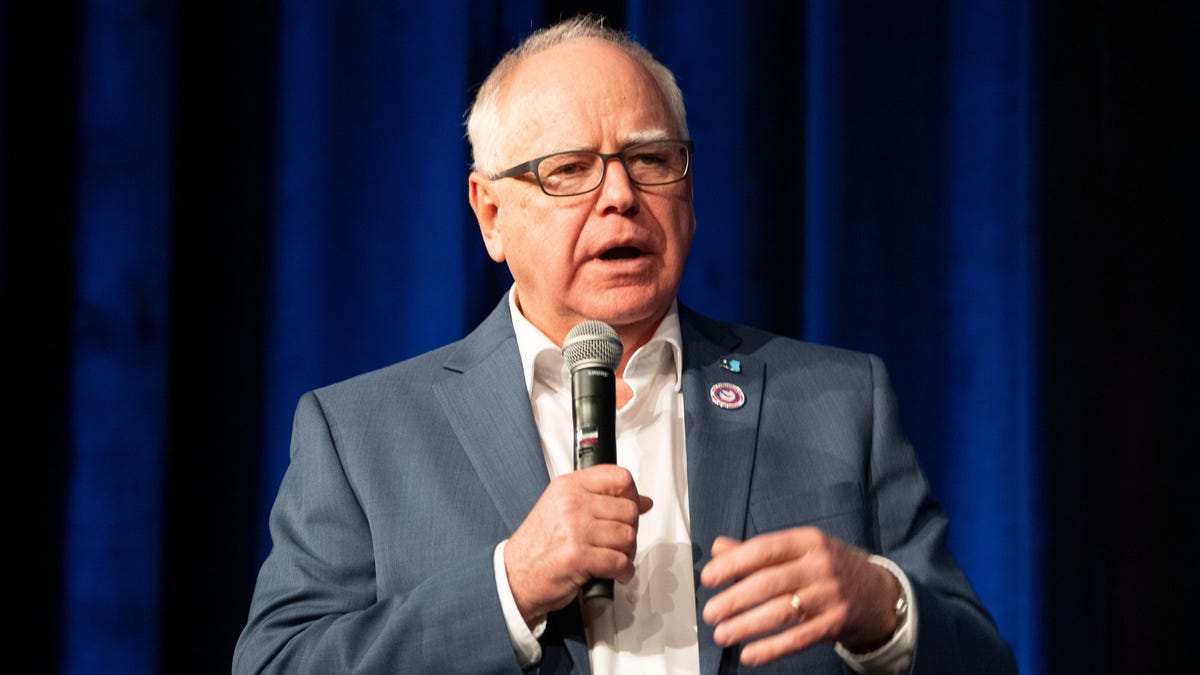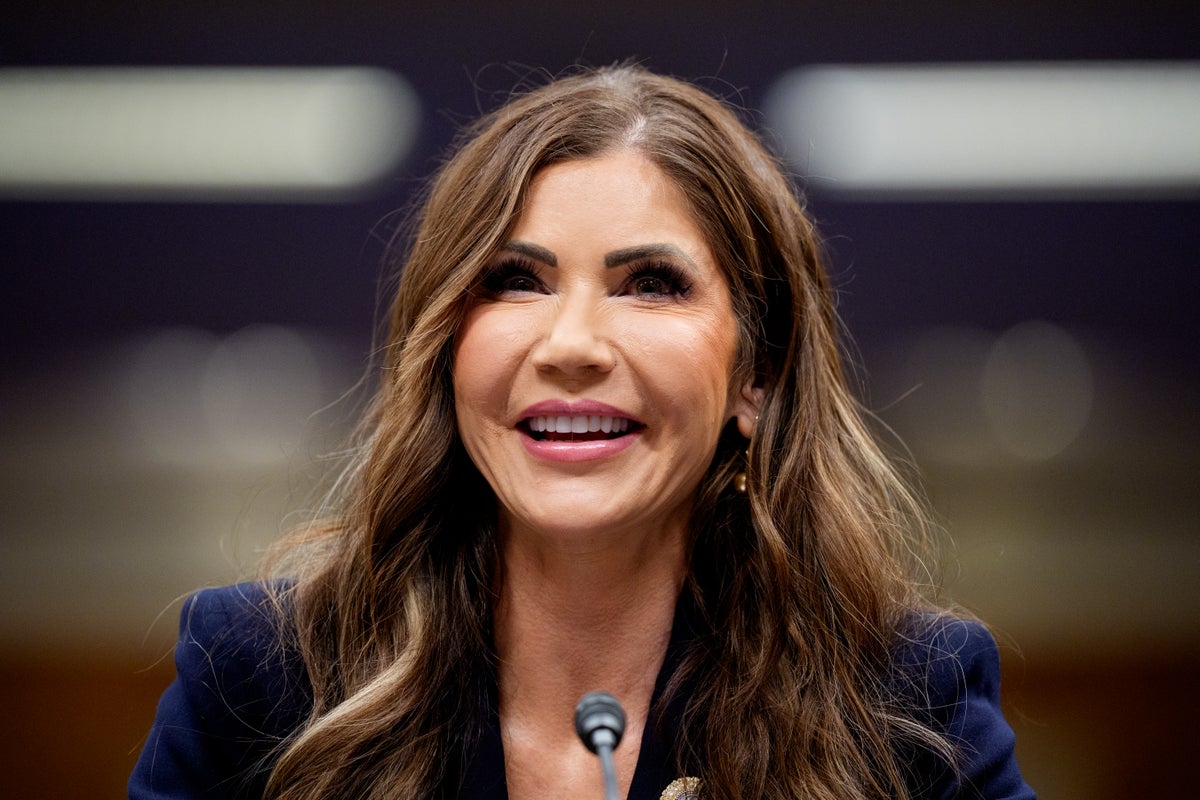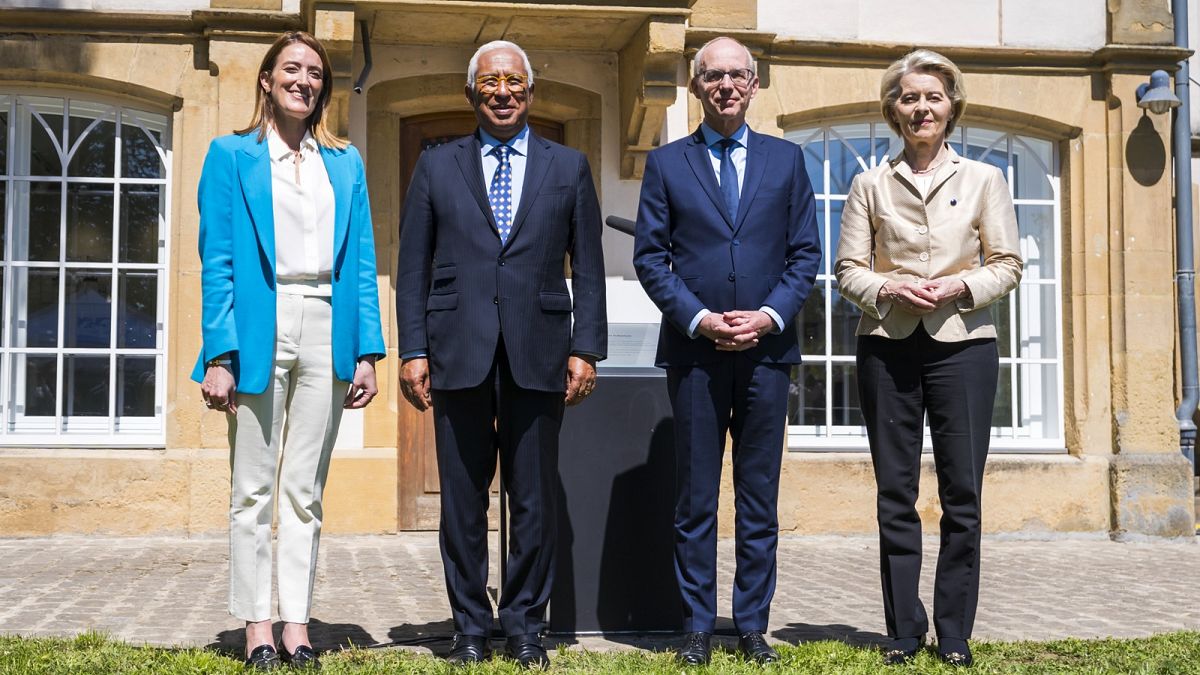Health
A Pianist Adapts to Life With Parkinson’s Disease

In the fall of 2018, the pianist Nicolas Hodges noticed his body shaking. He brought it up at a routine doctor’s appointment in Tübingen, Germany, where he lives. The doctor said it was probably stress, but recommended that he make an appointment with a neurologist.
Hodges didn’t make that appointment right away. But then, in January 2019, the shaking caused him to play a wrong note during a performance.
“It became instantly clear that I had to find out what was going on,” he said.
Dr. Klaus Schreiber, a neurologist and a classical music lover, observed Hodges performing a few minor physical tasks — walking across a room, undressing and dressing — before he sent him for a series of tests that confirmed Hodges had Parkinson’s disease.
Dr. Schreiber estimated that Hodges had been performing with Parkinson’s for three years.
Hodges, 53, is a leading interpreter of contemporary classical music. As a soloist and chamber musician, he has premiered and recorded works by many important composers of this century, and the last. Recently, his symptoms have forced him to reduce and prioritize his performing commitments.
The worst symptoms, which rarely occur, can leave him feeling, he said, as if he “just couldn’t play the piano.” But the diagnosis has also strengthened his dedication to his artistry and the contemporary repertoire.
Physical limits have forced Hodges to make “aesthetic decisions,” he said, to select what music to commission and to perform with greater rigor. The diagnosis has “made me try to focus even more on what multiple contradictory things are most important to me.”
Hodges has formidable technique and an ability to make the form of even highly complex pieces clearly audible. His tone color on the piano can shift from vinegary to supple in seconds. He is strikingly adaptable to the widely divergent visions of various contemporary composers. In John Adams’s “China Gates” (1977), Hodges has combined rhythmic propulsion with tiptoe delicacy. In Brian Ferneyhough’s opera “Shadowtime” (2004), he tackled a prismatically virtuosic solo while asking enigmatic questions out loud, like “What is the cube root of a counterfactual?” In Simon Steen-Andersen’s Piano Concerto (2014), he faced off against a video projection of himself at a smashed grand piano.
In 2020, Hodges recorded “A Bag of Bagatelles,” which wove together works by Beethoven and Harrison Birtwistle, a close collaborator. The juxtaposition illuminates the complexity, unpredictability and orchestral scale that animate the music of two composers centuries apart. Looking back, Hodges realized that he had recorded the album with untreated Parkinson’s disease.
HODGES WAS BORN in London in 1970. His father was a studio manager at the BBC who later worked in computing, and his mother was a professional opera singer. Hodges began playing the piano at age 6 and composing at 9. Among his early pieces was the first scene of an opera based on the Perseus myth.
Hodges attended elementary school at Christ Church Cathedral School in Oxford, where he took lessons on the viola, the oboe, the harpsichord and the organ, in addition to the piano. He sang in the Christ Church Cathedral Choir, performing works like Benjamin Britten’s “War Requiem” at the Royal Festival Hall under Simon Rattle.
“We were woken up earlier than the rest of the school to practice,” Hodges said. The students who didn’t play music “got half an hour more sleep than I did the whole of my childhood.”
For secondary school, Hodges went to Winchester College, in Hampshire, where Benjamin Morison, a pianist and composer who is now a professor of philosophy at Princeton University, introduced Hodges to contemporary music by playing an LP of music by Birtwistle and Gyorgy Kurtag. Hodges and Morison performed an arrangement of Stravinsky’s “The Rite of Spring” for two pianos and Pierre Boulez’s restless “Structures II” for their teachers and fellow students at Winchester, to bemused reactions.
“I remember him being very precise — and encouraging me to be precise — and extremely musical,” Morison said of Hodges in a phone interview. “He was able to make the music speak as music.”
In 1986, Hodges took a seminar with the composer Morton Feldman at the Dartington Summer School, where Feldman impressed upon him the seriousness of the experimental avant-garde. Hodges also played in a band that covered songs by the Sex Pistols and the Sisters of Mercy.
It was a heady and influential time. “I was improvising; I was listening to weird, dark, funky music, and playing Debussy,” Hodges said.
For several years, he considered pursuing composition, to the dismay of his more traditionally minded mother. At age 23, he decided to refocus on the piano. “I just was having more fun as a pianist,” he said. “Composing is too much hard work.”
As part of that decision, Hodges began studying with the pianist Sulamita Aronovsky, who had defected to Britain from the Soviet Union. A car crash shortly after the move had ended her career as a performer. “She used to say to me, whenever I would come to her lesson and complain, ‘Mr. Hodges, you have to accept everyone has these problems,’” he recalled. “‘It’s the people who get past these problems who have careers.’”
Hodges has since performed as a soloist with orchestras including the New York Philharmonic, the Boston Symphony Orchestra and the London Philharmonic Orchestra — usually in contemporary repertoire and often with pieces written for him. He is a professor of piano at the State University of Music and Performing Arts in Stuttgart, Germany, and almost constantly premieres new work solo and in chamber music formations.
“All these composers that we had idolized when we were teenagers, he has subsequently commissioned pieces from,” said Morison, who remains close with Hodges. “It’s an extraordinary thrill to witness that.”
WHEN HODGES RECEIVED his diagnosis, the news came with conflicting emotions. The first, Hodges recalled, was a certain cockiness. “I’m going to be a medical miracle,” he thought to himself. “I’m going to carry on whatever happens.”
When that phase passed, Hodges felt relief. He had a clear diagnosis, and the dopamine treatments prescribed by Dr. Schreiber helped. “The medication makes it possible for me to sometimes feel and play like I don’t have it,” Hodges said. “When you’re suffering from something like that and you’re untreated, you feel like you’re getting old before your time, you feel like your children have worn you out — and my poor children were blamed for that.”
Hodges has had to make painful decisions while prioritizing performing commitments. Since 2012, he has played in Trio Accanto, an ensemble consisting of Hodges, the German percussionist Christian Dierstein and the Swiss saxophonist Marcus Weiss. The group has toured Europe’s major new-music festivals and recorded six albums of contemporary music together.
When Dierstein and Weiss learned of Hodges’s diagnosis, they were shaken. “We’re scared, and we are as concerned and sad as we were when we first found out,” Dierstein said in a video interview. “But it was always clear to us that we want to continue playing with Nic and that we’ll take the illness into account.”
After a period of reflection during the coronavirus pandemic, Hodges decided to withdraw from Trio Accanto. He found the logistics involved in traveling to concerts and dealing with the complex instrumental setups required by many pieces too taxing. The 2024-25 season will be Hodges’s last with the group.
Playing with Trio Accanto “was ideal chamber music for me,” Hodges said. But, he added, “Parkinson’s makes it necessary for my life to be simple.”
Hodges has also learned to structure the doses of his medication — including a dopamine inhaler, a receptor agonist patch and extended-release pills — in a way that supports his concert roster. This often requires stark sacrifices: He essentially schedules the worst of his symptoms.
In February, Hodges performed Rebecca Saunders’s “to an utterance” for piano and orchestra, a work composed for him, at the Elbphilharmonie in Hamburg. A final rehearsal the afternoon of the performance meant he had to take dopamine once at 4 p.m., and again at 8 p.m.
“There might be moments when I feel like I’ve taken a bit too much,” Hodges said earlier that day, “but in the situation of playing, that’s way better than having taken too little.”
In an email, Saunders said that Hodges still plays with intensity. “His recent performance of the piano concerto ‘to an utterance’ was brilliant, and I found it deeply expressive,” she wrote. She is planning to write him an ambitious new piece she described as “a big, long solo based on the concerto.”
Seven other composers are currently at work on new piano concertos for Hodges. This spring, he recorded Betsy Jolas’s complete solo piano works and premiered a new piece by Christian Wolff, “Scraping Up Sand in the Bottom of the Sea.” Hodges also plans to record an album with works by Debussy and contemporary composers, similar to his double portrait of Beethoven and Birtwistle.
On rare occasions, Hodges has felt he was treated differently because of his illness. One composer recently “looked straight at my hands as if they would be twisted or bleeding,” he said. But many more of his collaborators have been supportive, helping him adapt without condescension or pity.
Hodges says that his goal, now, is to adjust his career “to ensure that I have the best chance to slow the progress of the disease and thus keep playing with any qualities I might have had before Parkinson’s more or less intact.”
He knows that might not last forever. “If I should stop playing, then I hope that my friends tell me I should stop playing,” Hodges said. “But, at the moment, it’s working.”

Health
Trump Plan Would Tie Some Drug Prices to What Peer Nations Pay

President Trump will sign an executive order on Monday aimed at lowering some drug prices in the United States by aligning them with what other wealthy countries pay, he said on Truth Social on Sunday evening.
The proposal he described, which alone cannot shift federal policy, is what he calls a “most favored nation” pricing model. Mr. Trump did not provide details about which type of insurance the plan would apply to or how many drugs it would target, but he indicated that the United States should pay the lowest price among its peer countries.
“Our Country will finally be treated fairly, and our citizens Healthcare Costs will be reduced by numbers never even thought of before,” he wrote in his social media post.
Any such plan will most likely be subject to challenges in court, and it is not clear whether it will pass legal muster, especially without action by Congress.
In his first term, Mr. Trump tried unsuccessfully to enact a version of this idea for Medicare, the health insurance program that covers 68 million Americans who are over 65 or have disabilities. That plan would have applied only to 50 drugs, administered at clinics and hospitals, that are paid for by Medicare. A federal court blocked it, ruling that the administration had skipped steps in the policymaking process.
The pharmaceutical industry bitterly opposes the idea, which would almost certainly cut into its profits, and has been lobbying against it as discussions of the policy have regained steam in Washington in recent weeks. Companies have warned that such a policy would lead them to spend less on research, depriving patients of new medicines.
“Government price setting in any form is bad for American patients,” Alex Schriver, an official at the drug industry’s main lobbying group, PhRMA, said in a statement. He added, “Policymakers should focus on fixing the flaws in the U.S. system, not importing failed policies from abroad.”
Mr. Trump’s embrace of the idea sets him apart from most Republicans, who have tended to be skeptical of government price setting. Democratic lawmakers have proposed versions of the idea.
Ameet Sarpatwari, an expert in pharmaceutical policy at Harvard Medical School, said that Mr. Trump was tapping into an idea that had “populist appeal.”
Mr. Trump has long complained that the United States pays much more than other wealthy countries do for the same drugs. And he is right. In the United States, prices for brand-name drugs are three times as high, on average, as those in peer nations.
That is in spite of the fact that much of the research that leads to new drugs takes place in American laboratories and hospitals.
Drugmakers generate a substantial majority of their worldwide profits from sales in the United States and typically design their business strategy around the U.S. market.
Pharmaceutical companies argue that the higher prices in the United States come with an added benefit: Industry-funded analyses have found that patients in the United States get medicines faster, and with fewer insurance restrictions, than those in other countries.
Health
AI tool scans faces to predict biological age and cancer survival

A simple selfie could hold hidden clues to one’s biological age — and even how long they’ll live.
That’s according to researchers from Mass General Brigham, who developed a deep-learning algorithm called FaceAge.
Using a photo of someone’s face, the artificial intelligence tool generates predictions of the subject’s biological age, which is the rate at which they are aging as opposed to their chronological age.
MUSIC CONDUCTOR WITH PARKINSON’S SEES SYMPTOMS IMPROVE WITH DEEP BRAIN STIMULATION
FaceAge also predicts survival outcomes for people with cancer, according to a press release from MGB.
A simple selfie could hold hidden clues to one’s biological age — and even how long they’ll live. (iStock)
The AI tool was trained on 58,851 photos of “presumed healthy individuals from public datasets,” the release stated.
To test the tool’s accuracy, the researchers used it to analyze photos of 6,196 cancer patients taken before radiotherapy treatment.
Among the people with cancer, the tool generated a higher biological age that was about five years higher than their chronological age.
PARALYZED MAN WITH ALS IS THIRD TO RECEIVE NEURALINK IMPLANT, CAN TYPE WITH BRAIN
The researchers also tested the tool’s ability to predict the life expectancy of 100 people receiving palliative care based on their photos, then compared it to 10 clinicians’ predictions. FaceAge was found to be more accurate than the clinicians’ predictions.
The researchers’ findings were published in The Lancet Digital Health.

Mass General Brigham developed a deep-learning algorithm called FaceAge, which generates predictions of the subject’s biological age from a photo. (Mass General Brigham)
“We can use artificial intelligence to estimate a person’s biological age from face pictures, and our study shows that information can be clinically meaningful,” said co-senior and corresponding author Hugo Aerts, PhD, director of the Artificial Intelligence in Medicine (AIM) program at Mass General Brigham, in the release.
“This work demonstrates that a photo like a simple selfie contains important information that could help to inform clinical decision-making and care plans for patients and clinicians,” he went on.
WOMAN SAYS CHATGPT SAVED HER LIFE BY HELPING DETECT CANCER, WHICH DOCTORS MISSED
“How old someone looks compared to their chronological age really matters — individuals with FaceAges that are younger than their chronological ages do significantly better after cancer therapy.”
The goal is for the tool to help eliminate any bias that may influence a doctor’s care decisions based on the perception of a patient’s appearance and age.
“While FaceAge may outperform clinicians in some survival predictions, it should augment human judgment, not override it.”
The researchers noted that more research is needed before the tool could be rolled out for clinical use.
Future studies will include different hospitals and cancer patients at various stages of the disease, according to the release. Researchers will also evaluate FaceAge’s ability to predict diseases, general health status and lifespan.

To test the tool’s accuracy, the researchers used it to analyze photos of 6,196 cancer patients taken before radiotherapy treatment. (iStock)
“This opens the door to a whole new realm of biomarker discovery from photographs, and its potential goes far beyond cancer care or predicting age,” said co-senior author Ray Mak, MD, a faculty member in the AIM program at Mass General Brigham, in the release.
“As we increasingly think of different chronic diseases as diseases of aging, it becomes even more important to be able to accurately predict an individual’s aging trajectory. I hope we can ultimately use this technology as an early detection system in a variety of applications, within a strong regulatory and ethical framework, to help save lives.”
ER physician on AI
Dr. Harvey Castro, a board-certified emergency medicine physician and national speaker on artificial intelligence based in Dallas, Texas, was not involved in FaceAge’s development but shared his comments on the tool.
ARE FULL-BODY SCANS WORTH THE MONEY? DOCTORS SHARE WHAT YOU SHOULD KNOW
“As an emergency physician and AI futurist, I see both the promise and peril of AI tools like FaceAge,” he told Fox News Digital.
“What excites me is that FaceAge structures the clinical instinct we call the ‘eyeball test’ — a gut sense of how sick someone looks. Now, machine learning can quantify that assessment with surprising accuracy.”

Among the people with cancer, the tool generated a higher biological age that was about five years higher than their chronological age. (iStock)
Castro predicts that FaceAge could help doctors better personalize treatment plans or prioritize palliative care in oncology — “where resilience matters more than a birthdate.”
The doctor emphasized, however, that caution is key.
“AI models are only as good as the data they’re trained on,” Castro noted. “If the training data lacks diversity, we risk producing biased results.”
“While FaceAge may outperform clinicians in some survival predictions, it should augment human judgment, not override it.”
CLICK HERE TO SIGN UP FOR OUR HEALTH NEWSLETTER
Castro also cautioned about potential ethical concerns.
“Who owns the facial data? How is it stored? Do patients understand what’s being analyzed? These questions matter as much as the technology itself,” he said.

“AI can enhance our care — but it cannot replace the empathy, context and humanity that define medicine.” (iStock)
There is also a psychological impact of the tool, Castro noted.
“Being told you ‘look older’ than your age could influence treatment decisions or self-perception in ways we don’t yet fully understand,” he said.
“We need clear consent, data privacy and sensitivity. No one wants to be told they look older without context.”
For more Health articles, visit www.foxnews.com/health
The bottom line, according to Castro, is that AI can enhance a doctor’s judgment, but cannot replace it.
“AI can enhance our care — but it cannot replace the empathy, context and humanity that define medicine.”
Health
Sprout Health: Real Facts and Figures | Woman's World

Use left and right arrow keys to navigate between menu items.
Use escape to exit the menu.
Sign Up
Create a free account to access exclusive content, play games, solve puzzles, test your pop-culture knowledge and receive special offers.
Already have an account? Login
-
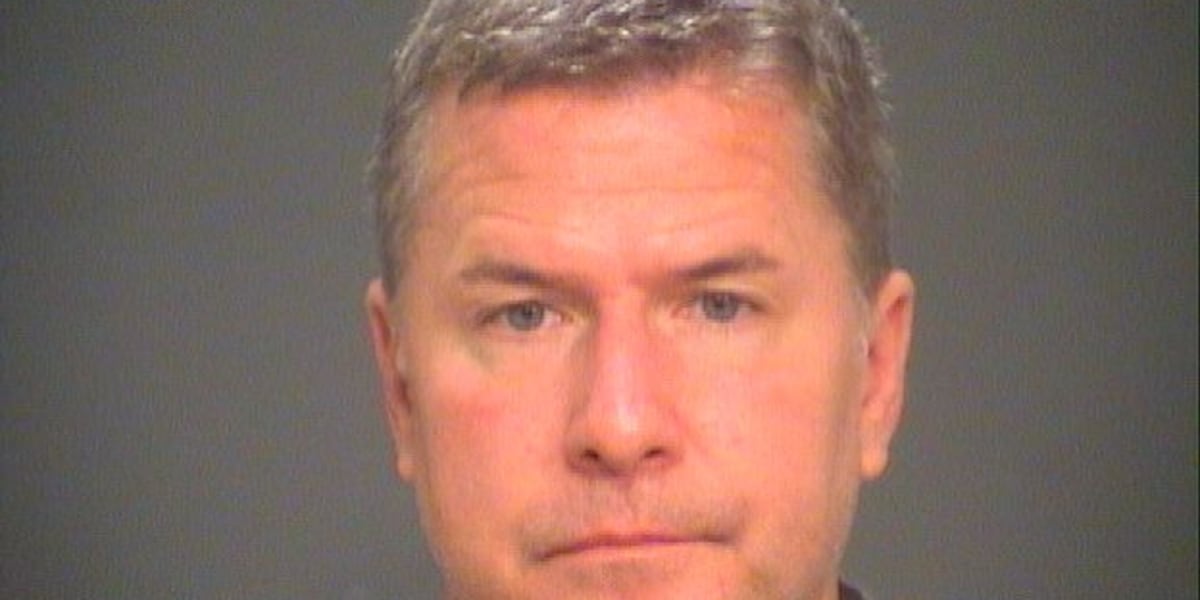
 Cleveland, OH1 week ago
Cleveland, OH1 week agoWho is Gregory Moore? Former divorce attorney charged for murder of Aliza Sherman in downtown Cleveland
-

 News1 week ago
News1 week agoFamily statement: Rodney Hinton Jr. walked out of body camera footage meeting with CPD prior to officer death
-

 Politics1 week ago
Politics1 week agoTrump posts AI image of himself as Pope amid Vatican's search for new pontiff
-
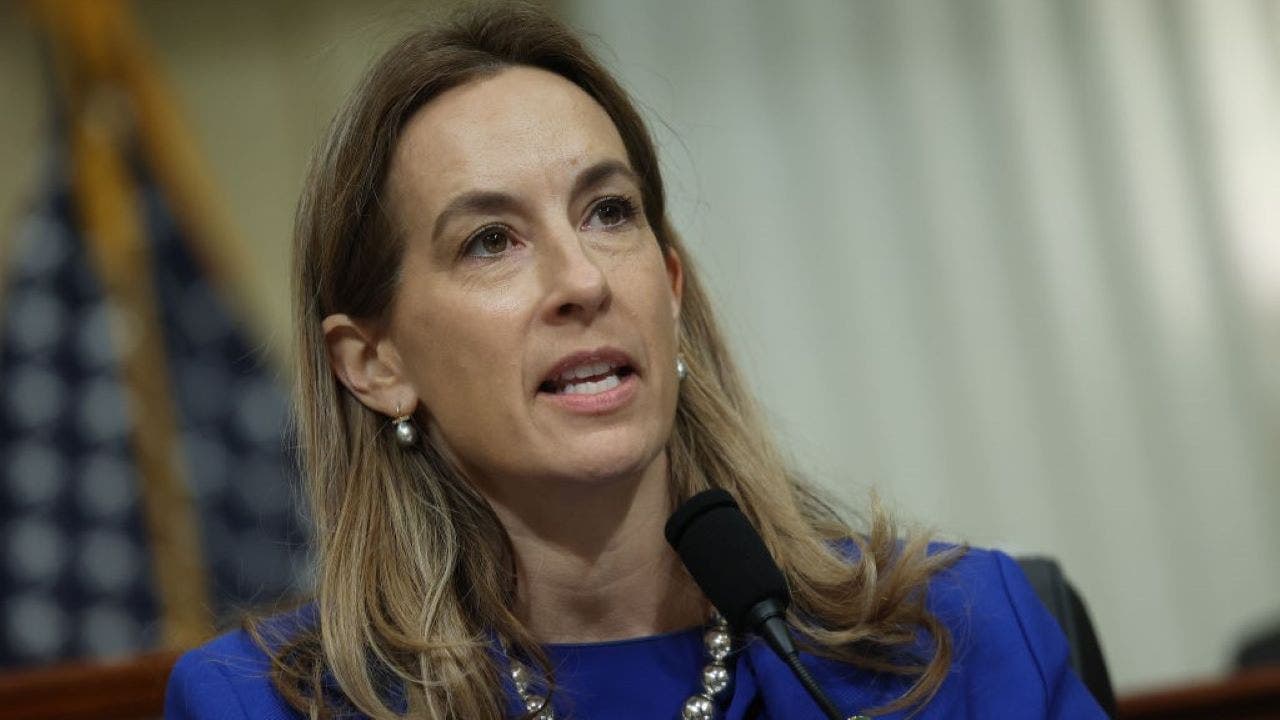
 Politics1 week ago
Politics1 week agoRep. Mikie Sherrill suggests third Trump impeachment as she campaigns to be next New Jersey governor
-

 News1 week ago
News1 week agoAre Politicians Too Old? California Democrats Want to Debate an Age Cap.
-

 World1 week ago
World1 week ago‘Don’t see a major war with India, but have to be ready’: Pakistan ex-NSA
-

 News1 week ago
News1 week agoFather Whose Son Was Shot by Cincinnati Police Hits Deputy With Car, Killing Him
-

 News1 week ago
News1 week agoFederal judge strikes down Trump order targeting the law firm Perkins Coie




